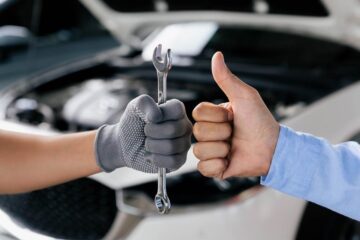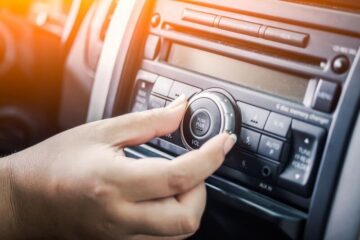The Role of the Alternator in Your Car’s Electrical System

An integral element of your car’s electrical system, the alternator powers several electrical components and charges the battery. Maintaining the electrical system in your car requires an understanding of how it functions and potential problems. The purpose of the alternator, typical problems, and how they might result in electrical failures are all covered in detail in this article.
The Operation of the Alternator
The main job of the alternator is to convert engine mechanical energy into electrical energy. A serpentine belt that connects it to the engine rotates the alternator’s rotor when the engine is running. Alternating current (AC) is produced in the stator by the magnetic field created by this spinning action. The rectifier then transforms the AC into direct current (DC), which operates the car’s electrical equipment, including the radio, air conditioning, and headlights, and charges the battery. The alternator basically keeps the battery charged while the engine is operating.
Signs of a Dangerous Alternator
A broken alternator may cause a number of obvious symptoms. The battery warning light on the dashboard is the most typical indicator. Although it may potentially indicate a battery problem, this light often signals an alternator problem. Dimming headlights, flickering dashboard lights, or trouble starting the vehicle are further indications. The battery will rapidly deplete if the alternator fails entirely, and the car could shut off for lack of electricity. Going for Auto Repair in Sardinia, OH based service would be perfect here.
Typical Issues with the Alternator
An alternator might fail for a number of reasons. One of the most frequent issues is worn-out brushes that keep in touch with the rotor. Electrical issues might also arise from the alternator overcharging or undercharging the battery due to a malfunctioning voltage regulator. Inadequate electrical connections or a broken serpentine belt may potentially be the cause of the alternator’s malfunction.
How to Resolve Issues with Alternators
It’s recommended to have a qualified technician check your alternator if it’s not working properly. Depending on the problem, parts like the brushes or voltage regulator may need to be replaced in order to fix the alternator. In more extreme situations, a complete alternator replacement can be required.
How to Avoid Alternator Failures
Frequent maintenance is essential to extending the life of your alternator. Avoid excessive idling, clean the battery connections, and check for wear on the serpentine belt. Frequent inspections may help identify alternator problems early on, averting later, more severe electrical breakdowns.
To sum up, the alternator is an important part of your car’s electrical system since it keeps the battery charged and powers necessary parts. You may prevent electrical breakdowns and maintain the smooth operation of your vehicle by identifying the signs of a malfunctioning alternator and carrying out routine maintenance.















